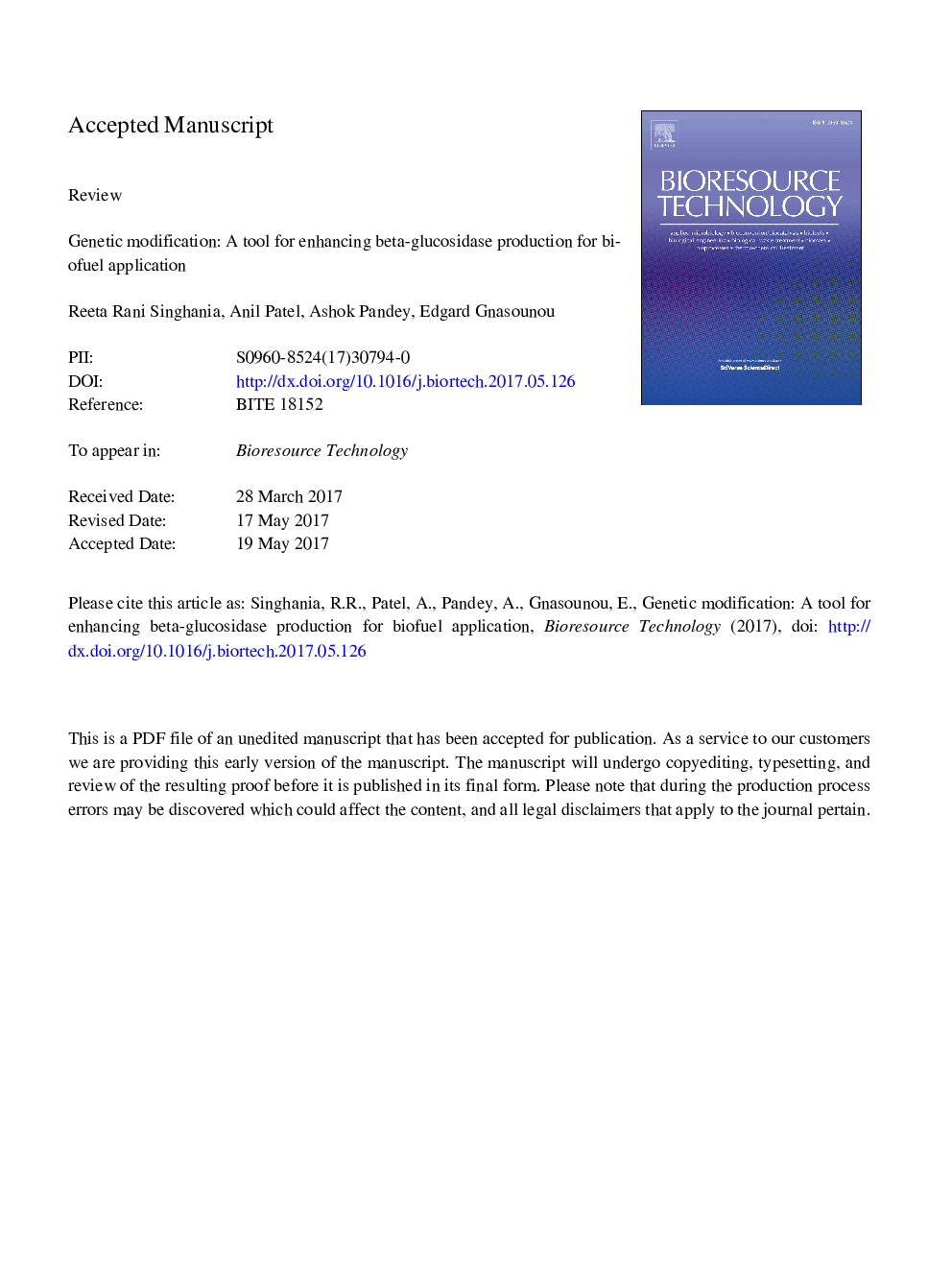| Article ID | Journal | Published Year | Pages | File Type |
|---|---|---|---|---|
| 7069387 | Bioresource Technology | 2017 | 40 Pages |
Abstract
Beta-glucosidase (BGL) is a rate-limiting enzyme for cellulose hydrolysis as it acts in the final step of lignocellulosic biomass conversion to convert cellobiose into glucose, the final end product. Most of the fungal strains used for cellulase production are deficient in BGL hence BGL is supplemented into cellulases to have an efficient biomass conversion. Genetic engineering has enabled strain modification to produce BGL optimally with desired properties to be employed for biofuel applications. It has been cloned either directly into the host strains lacking BGL or into another expression system, to be overexpressed so as to be blended into BGL deficient cellulases. In this article, role of genetic engineering to overcome BGL limitations in the cellulase cocktail and its significance for biofuel applications has been critically reviewed.
Related Topics
Physical Sciences and Engineering
Chemical Engineering
Process Chemistry and Technology
Authors
Reeta Rani Singhania, Anil Kumar Patel, Ashok Pandey, Edgard Ganansounou,
